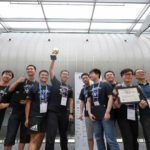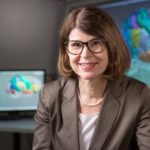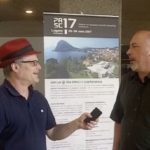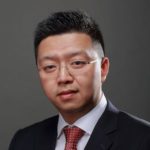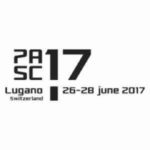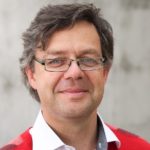Katrin Heitmann from the University of Chicago presented this talk at PASC17. “In this talk I will introduce HACC, the Hardware/Hybrid Accelerated Cosmology Code, which is being developed to combat the tremendous computational challenge to simulate our Universe.” After the talk, she discusses Dark Matter with Rich Brueckner from insideHPC.
Radio Free HPC Looks at Results from the ISC 2017 Student Cluster Competition
In this podcast, the Radio Free HPC team looks back at the recent ISC 2017 conference and summarizes results from the Student Cluster Competition. “Eleven student teams were on the show floor this year, vying against each other for the top honors in the sixth annual ISC Student Cluster Competition. Tsinghua University from China emerged as the Overall Competition Winner, thus marking their third win in the contest.”
Video: Towards the Decoding of the Human Brain
Katrin Amunts from Jülich presented this keynote at the PASC17 conference. “The human brain has a multi-level organization and high complexity. New approaches are necessary to decode the brain with its 86 billion nerve cells, each with 10,000 connections. 3D Polarized Light Imaging, for example, elucidates the connectional architecture at the level of axons, while keeping the topography of the whole organ; it results in data sets of several petabytes per brain, which should be actively accessible while minimizing their transport. The Human Brain Project creates a cutting-edge HPC- and HPDA infrastructure to address such challenges including cloud-based collaboration and development platforms with databases, workflow systems, petabyte storage, and supercomputers.”
Interview: Piz Daint Supercomputer advances to the #3 position on the TOP500
In this video from PASC17 in Lugano, Michele De Lorenzi from CSCS discussed the recent advancement of Piz Daint supercomputer to the #3 position on the TOP500. After that, he describes the mission of the PASC conference and the location of PASC18 next year.
Video: Scaling Climate and Weather Forecasting on Sunway TaihuLight
Haohuan Fu from Tsinghua University in China at the PASC17 conference in Lugano. “This talk reports efforts on refactoring and optimizing the climate and weather forecasting programs – CAM and WRF – on Sunway TaihuLight. To map the large code base to the millions of cores on the Sunway system, OpenACC-based refactoring was taken as the major approach, with source-to-source translator tools applied to exploit the most suitable parallelism for the CPE cluster and to fit the intermediate variable into the limited on-chip fast buffer.”
PASC17 to Feature Panel Discussions on Moore’s Law and Computational Sciences
The upcoming PASC17 conference has posted further details on a pair of panel discussions taking place at the conference next month. The conference takes place June 26-28 in Lugano, Switzerland.
Katrin Amunts to Present on Decoding the Human Brain at PASC17
Today the PASC17 Conference announced Professor Katrin Amunts plenary presentation will be entitled, “Towards the Decoding of the Human Brain.” Regarded as one of the world’s foremost neuroscientists in the field of brain mapping, Dr. Amunts is director of the Cécile and Oskar Vogt Institute of Brain Research at the University of Düsseldorf, and director of the Institute of Neuroscience and Medicine at Forschungszentrum Jülich.
Call for Exhibitors: PASC17 in Lugano
Industry and academic institutions are invited to showcase their R&D at PASC17, an interdisciplinary event in high performance computing that brings together domain science, applied mathematics and computer science. The event takes place June 26-28 in Lugano, Switzerland. “The PASC17 Conference offers a unique opportunity for your organization to gain visibility at a national and international level, to showcase your R&D and to network with leaders in the fields of HPC simulation and data science. PASC17 builds on a successful history – with 350 attendees in 2016 – and continues to expand its program and international profile year on year.”
PASC17 to Feature Talk by Gordon Bell Prize Winner Haohuan Fu
“This talk reports efforts on refactoring and optimizing the climate and weather forecasting programs – CAM and WRF – on Sunway TaihuLight. To map the large code base to the millions of cores on the Sunway system, OpenACC-based refactoring was taken as the major approach, with source-to-source translator tools applied to exploit the most suitable parallelism for the CPE cluster and to fit the intermediate variable into the limited on-chip fast buffer.”
Video: A Hybrid Approach to Strongly Correlated Materials
Matthias Troyer frin ETH Zurich presented this talk at a recent Microsoft Research event. “Given limitations to the scaling for simulating the full Coulomb Hamiltonian on quantum computers, a hybrid approach – deriving effective models from density functional theory codes and solving these effective models by quantum computers seem to be a promising way to proceed for calculating the electronic structure of correlated materials on a quantum computer.”


